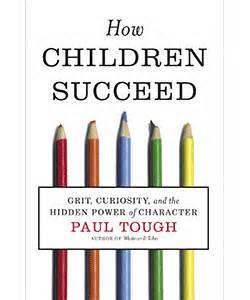How Children Succeed: Grit, Curiosity, and the Hidden Power of Character
 I just finished reading the book How Children Succeed: Grit, Curiosity, and the Hidden Power of Character by Paul Tough. Here’s how I summarized it on my Family Math Night facebook page:
I just finished reading the book How Children Succeed: Grit, Curiosity, and the Hidden Power of Character by Paul Tough. Here’s how I summarized it on my Family Math Night facebook page:
“Kids succeed in a stress-free, nurturing environment where delayed gratification is encouraged and perseverance is developed through “managed” failure.”
Instead of writing a long book review, I thought I’d simply list below all the sentences I highlighted while reading the book. It will give you a good idea of the book’s messages.
– Those traits – an inclination to persist at a boring and often unrewarding task; the ability to delay gratification; the tendency to follow through on a plan – also turned out to be valuable in college, the workplace, and life generally (xix)
– children who grow up in a stressful environments generally find it harder to concentrate, harder to sit still, harder to rebound from disappointment, and harder to follow directions. And that has a direct effect on their performance in school (17)
– parents and other caregivers who are able to form close, nurturing relationships with their children can foster resilience in them that protects them from many of the worst effects of a harsh early environment (28)
– high-quality mothering can act as a powerful buffer against the damage that adversity inflicts on a child’s stress-response system (32)
– warm, sensitive parental care created a “secure base” from which a child could explore the world (34)
– children with a secure attachment early on were more socially competent throughout their lives: better able to engage with preschool peers, better able to form close friendships in middle childhood, better able to negotiate the complex dynamics of adolescent social networks (35)
– …responding sensitively to infants’ cues…seem to have had a powerful and long-lasting effect on the children’s outcomes in a variety of similar ways: the human…babies who received the extra dose of early care were, later on, more curious, more self-reliant, calmer, and better able to deal with obstacles. The early nurturing attention from their mothers had fostered in them a resilience that acted as a protective buffer against stress. (37)
– conscientiousness…predicts so many outcomes that go far beyond the workplace. People high in conscientiousness get better grades in high school and college; they commit fewer crimes; and they stay married longer. They have fewer strokes, lower blood pressure, and a lower incidence of Alzheimer’s disease. (71)
– …a set of strengths that were…expecially likely to predict life satisfaction and high achievement: grit, self-ontrol, zest, social intelligence, gratitude, optimism, curiosity (76)
– moral character…which embodies ethical values like fairness, generosity, and integrity (78)
– performance character…which embodies values like effort, diligence, and perseverance (78)
– …what kids need more than anything is a little hardship: some challenge, some deprivation that they can overcome, even if just to prove to themselves that they can (84)
– …the best way for a young person to build character is for him to attempt something where there is a real and serious possibility of failure (85)
– “The idea of building grit and building self-control is that you get that through failure.” (86)
– …students do much better academically if the believe intelligence is malleable (97)
– The most impressive effect was seen in the math scores of female students. The effect of stereotype threat has been well documented in the math scores of girls and women, who seem to be especially anzious in testing situations when they think tey might confirm the stereotype that girls are bad in math. In the Texas experiment, girls who received the standard anti-drug message averaged 74 on the test, about eight points below the male students who heard the same message. The girls who heard a growth-mindset message averaged about 84, closing the gap with the male students completely. (98)
– The far better predictor of college completion was a student’s high-scool GPA. (152)
– …standardized-test socres were predicted by scores on pure IQ tests and that GPA was predicted by scores on tests of self-control (153)
– …high-school grades reveal muchmore than mastery of content. They reveal qualities of motivation and perseverance – as well as the presence of good study habits and time management skills – that tell us a great deal about the chances that a student will complete a college program. (153)
– “The idea of building grit and building self-control is that you get that through failure.” (177)
– …the most reliable way to produce an adult who is brave and curious and kind and prudent is to…protect him from serious trauma and chronic stress; then, even more important, you provide him with a secure, nurturing relationship with at least one parent and ideally two. (182)
– (a child needs) discipline, rules, limits; someone to say no. And what he needed more than anything was some child-size adversity, a chance to fall down and get back up on his own, without help (183)
– (parents) need to help (our child) learn to manage failure (183)